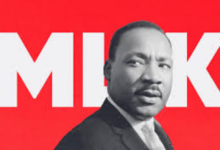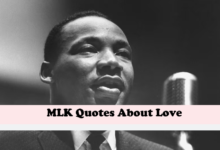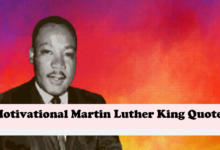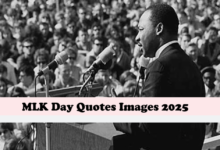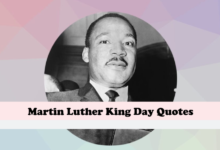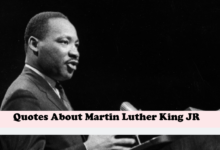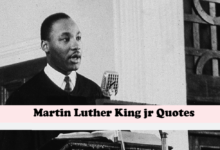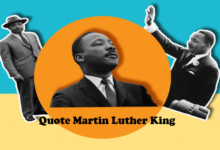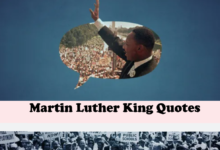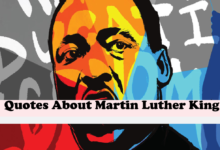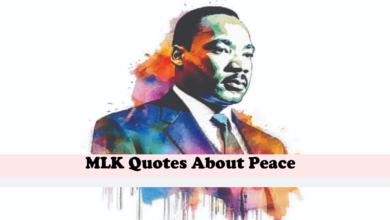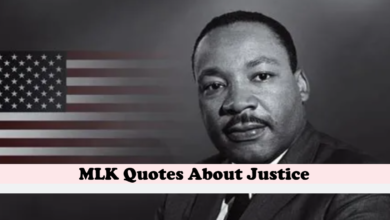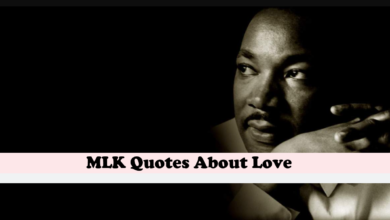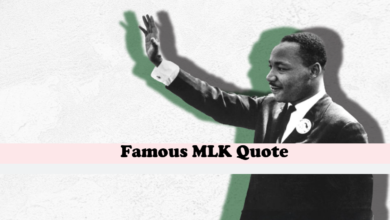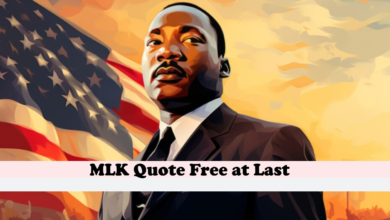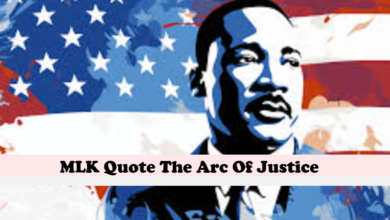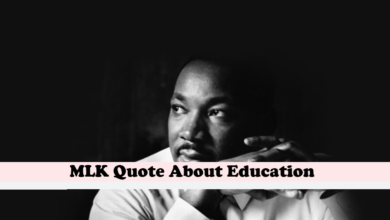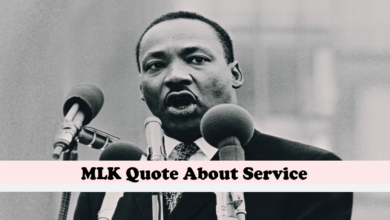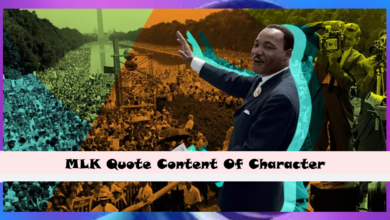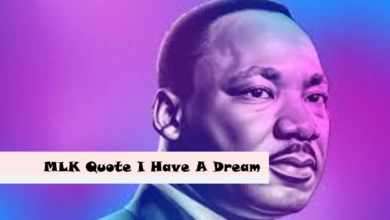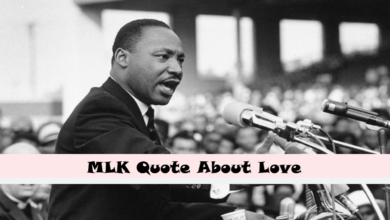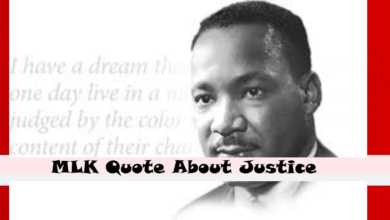Injustice MLK Quote 2025
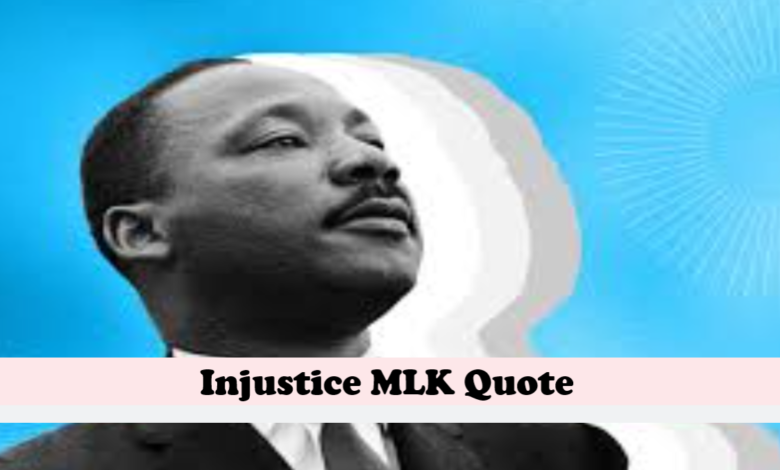
Martin Luther King Jr. remains one of the most iconic figures in the history of social justice, and his thoughts on injustice resonate today more than ever. Throughout his life, King used the power of words to speak out against the systemic racism, segregation, and inequality that plagued society. His speeches, sermons, and writings not only challenged these injustices but called for moral responsibility, active participation, and profound change.
One of King’s most famous quotes, “Injustice anywhere is a threat to justice everywhere,” encapsulates the essence of his philosophy. The profound impact of this quote—and others like it—extends beyond the civil rights movement and continues to guide modern-day activism. In this blog post, we’ll explore some of King’s most powerful quotes on injustice, discussing their relevance and the urgency they continue to carry in today’s world.
1. “Injustice anywhere is a threat to justice everywhere.”
This quote from King’s “Letter from Birmingham Jail” is perhaps his most famous and one of the most quoted in history. Written in 1963 while King was imprisoned in Birmingham, Alabama, this letter was a response to local clergy who had criticized his methods of protesting segregation and racial inequality. Their argument was that the fight for civil rights should be addressed in a more “gradual” manner, and that the people of Birmingham should wait for the “right time.”
King passionately rejected this notion, writing that waiting would only further perpetuate injustice. His words emphasize the interconnectedness of society: when injustice is allowed to thrive in one area, it affects the entire community. King was adamant that standing by silently in the face of injustice contributes to its spread. He declared that no one could be truly free until all people are free, and injustice in one part of the world threatened justice for all.
This call for global solidarity and immediate action against inequality resonates in today’s world, whether in the fight for racial justice, gender equality, or the rights of marginalized communities. King’s plea for collective responsibility is a timeless reminder that silence in the face of injustice is never acceptable.
2. “Justice too long delayed is justice denied.”
King penned this line in his famous “Letter from Birmingham Jail,” further expounding on his conviction that the struggle for justice must not be postponed. He directly addressed the argument of the clergy members who criticized the Civil Rights Movement’s urgency. To King, delay was not an option; it was equivalent to a denial of justice itself. The marginalization and oppression that Black Americans and other people of color experienced had gone on for far too long, and the time for change was now.
“Darkness cannot drive out darkness: only light can do that. Hate cannot drive out hate: only love can do that.”
― Martin Luther King Jr.,
“I have decided to stick to love…Hate is too great a burden to bear.”
― Martin Luther King Jr.
“I have decided to stick to love…Hate is too great a burden to bear.”
― Martin Luther King Jr.
“Our lives begin to end the day we become silent about things that matter.”
― Martin Luther King Jr.
“In the end, we will remember not the words of our enemies, but the silence of our friends.”
― Martin Luther King Jr.
Faith is taking the first step even when you can’t see the whole staircase.”
― Martin Luther King Jr.
“If you can’t fly then run, if you can’t run then walk, if you can’t walk then crawl, but whatever you do you have to keep moving forward.”
― Martin Luther King Jr.
“But I know, somehow, that only when it is dark enough can you see the stars.”
― Martin Luther King, Jr.
“Let no man pull you so low as to hate him.”
― Martin Luther King Jr., A Knock at Midnight: Inspiration from the Great Sermons of Reverend Martin Luther King, Jr.
“There comes a time when one must take a position that is neither safe, nor politic, nor popular, but he must take it because conscience tells him it is right.”
― Martin Luther King Jr., A Testament of Hope: The Essential Writings and Speeches
“Nothing in the world is more dangerous than sincere ignorance and conscientious stupidity.”
― Martin Luther King Jr.
“The ultimate measure of a man is not where he stands in moments of comfort and convenience, but where he stands at times of challenge and controversy.”
― Martin Luther King Jr.
“Intelligence plus character-that is the goal of true education.”
― Martin Luther King Jr.
“Everybody can be great…because anybody can serve. You don’t have to have a college degree to serve. You don’t have to make your subject and verb agree to serve. You only need a heart full of grace. A soul generated by love.”
― Martin Luther King Jr.
“No one really knows why they are alive until they know what they’d die for.”
― Martin Luther King Jr.
“We must come to see that the end we seek is a society at peace with itself, a society that can live with its conscience.”
― Martin Luther King Jr.
“Injustice anywhere is a threat to justice everywhere.”
― Martin Luther King Jr.
“A man who won’t die for something is not fit to live.”
― Martin Luther King Jr., The Autobiography of Martin Luther King, Jr.
“Forgiveness is not an occasional act, it is a constant attitude.”
― Martin Luther King Jr.
“If a man is called to be a street sweeper, he should sweep streets even as a Michaelangelo painted, or Beethoven composed music or Shakespeare wrote poetry. He should sweep streets so well that all the hosts of heaven and earth will pause to say, ‘Here lived a great street sweeper who did his job well.”
― Martin Luther King Jr.
“We must accept finite disappointment, but never lose infinite hope.”
― Martin Luther King Jr.
“Those who are not looking for happiness are the most likely to find it, because those who are searching forget that the surest way to be happy is to seek happiness for others.”
― Martin Luther King Jr.
“I have a dream that my four little children will one day live in a nation where they will not be judged by the color of their skin but by the content of their character.”
― Martin Luther King Jr.
“Never forget that everything Hitler did in Germany was legal.”
― Martin Luther King Jr.
“We must live together as brothers or perish together as fools.”
― Martin Luther King Jr.
“Science investigates; religion interprets. Science gives man knowledge, which is power; religion gives man wisdom, which is control. Science deals mainly with facts; religion deals mainly with values. The two are not rivals.”
― Martin Luther King, Jr
This quote reflects King’s frustration with the slow pace of societal change. He argued that systemic injustice could not be excused by waiting for the “right moment” or hoping that the status quo would eventually correct itself. For King, justice required active intervention and commitment. The longer society waited to address injustice, the longer it perpetuated suffering.
In today’s context, this quote serves as a call for swift action in addressing the continuing disparities in health care, education, wealth, and criminal justice. While progress has been made in some areas since King’s time, injustice continues to manifest in many parts of the world. The delay in addressing such issues is a denial of the rights of those who continue to suffer.
3. “We know through painful experience that freedom is never voluntarily given by the oppressor; it must be demanded by the oppressed.”
King’s words here reflect a crucial truth about systemic injustice: those in power rarely offer freedom or equality willingly. Instead, it is up to the oppressed to demand their rights and fight for change. Throughout history, oppressors have worked hard to maintain their position of privilege, whether through violence, suppression of information, or manipulation of laws and systems.
This quote highlights the importance of activism, protest, and organizing. King understood that the fight for justice was not something that would come about through passive negotiation or polite requests. It required bold action, courage, and determination from those who were being denied their basic human rights.
For modern-day activists, King’s words are a powerful reminder that justice is not something that is given freely. It must be earned through hard work, advocacy, and the willingness to confront uncomfortable truths. Whether through marches, protests, or voting, the struggle for justice requires the active participation of those who are oppressed.
4. “The time is always right to do what is right.”
For King, the fight for justice was not just about timing—it was about doing what was morally right, regardless of external circumstances. This quote reinforces the idea that there is never a “right” moment to act for justice; the right moment is always now. King’s courage in speaking out against injustice, even when it was dangerous or unpopular, set him apart as a visionary leader.
This quote calls us to take immediate action, especially when we witness acts of injustice. In many cases, we may feel hesitant to speak out or get involved because of fear, uncertainty, or a belief that change will take time. King’s words challenge this mentality and call for decisive, courageous action. There is no moment when it is acceptable to remain passive in the face of injustice.
As we look at today’s world, where issues such as racial inequality, gender discrimination, and economic injustice persist, King’s call to act now is still deeply relevant. The fight for justice must not wait for ideal conditions—it must be fought relentlessly, every day.
5. “I have a dream that one day every valley shall be exalted, every hill and mountain shall be made low, the rough places will be made plain, and the crooked places will be made straight, and the glory of the Lord shall be revealed, and all flesh shall see it together.”
In his iconic “I Have a Dream” speech, King envisioned a world where justice prevailed, and inequality was erased. He described a future where people would be judged by the content of their character rather than the color of their skin, and where all people could live freely and equally.
This dream of a just society encapsulated King’s hope for a world where racial and social inequalities no longer existed. It called for a moral and ethical revolution that would lead to the dismantling of the systems that perpetuated injustice and inequality. Though much progress has been made in achieving King’s dream, the full realization of his vision remains an ongoing struggle.
King’s dream continues to serve as a beacon of hope for all those who fight injustice today. It reminds us that we must continue the work of building a more equitable world, where all people are free to live without fear of discrimination or oppression.
6. “A riot is the language of the unheard.”
King’s words here acknowledge the frustration and anger that often arise when people feel that their voices are ignored or silenced. He recognized that riots and violent protests were often the result of longstanding injustice that had been met with indifference or repression. While King did not endorse violence as a solution, he understood why it sometimes occurred as a last resort when other methods of protest had failed.
This quote reminds us that when people are pushed to the margins of society and their grievances go unaddressed, they will eventually find ways to make their voices heard, even if those methods are disruptive. It serves as a powerful reminder that systemic injustice must be addressed long before it escalates into widespread anger and violence.
In today’s world, where protests and riots are still frequent in response to issues such as police brutality, economic inequality, and political corruption, King’s words continue to echo. They challenge us to listen to those who are suffering and work toward solutions before anger and frustration boil over into violence.
Conclusion: King’s Call to Action Against Injustice
Martin Luther King Jr.’s thoughts on injustice were not only revolutionary for his time but remain deeply relevant today. His words challenge us to confront injustice wherever it exists, whether in the criminal justice system, in the workplace, or in the voting booth. He understood that true justice requires active, collective participation and a willingness to demand change.
As we continue to fight against racism, sexism, and all forms of discrimination in 2025, King’s message calls us to act with urgency, integrity, and compassion. Whether we are marching in the streets, speaking out on social media, or standing up for our communities, King’s words continue to guide and inspire us to work toward a more just and equitable world. In the face of injustice, there is no room for delay—we must act now.
